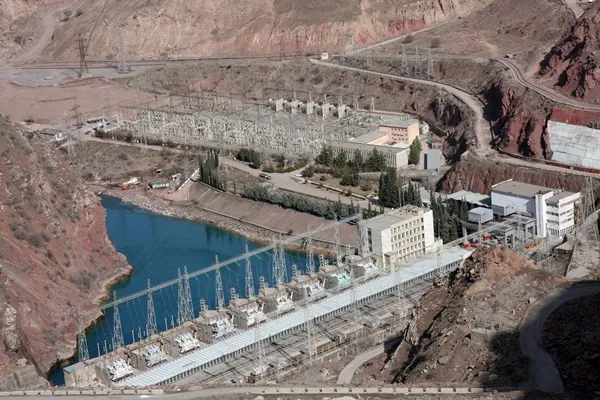According to a memorandum of understanding (MoU) signed at the eighth international Congress, Hydropower. Central Asia and the Caspian held in Tashkent, Masdar will build four pumped-storage power plants in Uzbekistan with a capacity of 1,600 MW. The MoU signed by Masdar (UAE) and JSC Uzbekhydroenergo will give Uzbekistan its first hydropower plants that use gravity-driven water flow that’s been pumped uphill to generate electricity when it’s released. Thanks to the plant, Uzbekistan will be able to better manage issues with interruptions to its electricity supply.
The large-scale hydropower project will be the first of its kind in Central Asia. Facilities built in the regions of Jizzak, Karakalpakstan, and Tashkent will have a total capacity of 1,600 MW capable of generating 2.8 gigawatt-hours (GWh) of electricity.
Uzbekistan has been collaborating with Masdar for several years in the fields of solar and wind energy. According to the International Hydropower Association (IHA), pumped-storage hydroelectric power plants account for more than 90% of the world’s installed energy storage capacity. By 2030, their total global capacity is forecast to reach 240 GW.
in regard to the country’s prospects on hydropower, Nodirbek Akchaboev, a department head at JSC Uzbekhydroenergo, stated, “Uzbekistan is striving to create a long-term and sustainable energy system. Uzbekhydroenergo acts as a locomotive to achieve these goals. We have set a goal to increase capacity up to 6,000 MW by 2030, and increase the hydro share in the generation of electricity 25% to 40%.”
During the congress, Uzbekhydroenergo outlined plans to build 18 new hydroelectric power plants with a capacity of 1,630 MW in addition to 28 small and micro-hydropower plants with a capacity of 28 MW. Fifteen existing hydro plants will be modernized. Thus, the total capacity of Uzbekistan’s hydropower assets will rise to almost 6,000 MW; 3.7 times higher than the current output.
Hydropower has now become the most widespread type of renewable energy and provides almost a quarter of the world’s energy consumption. It therefore generates enough sustainable energy for over one billion households and 90% of the top 25 nations by population depends on this system. Furthermore, the development of the energy-transmission grid is becoming increasingly critical under current climate change conditions that require increased use of alternative energy sources.



